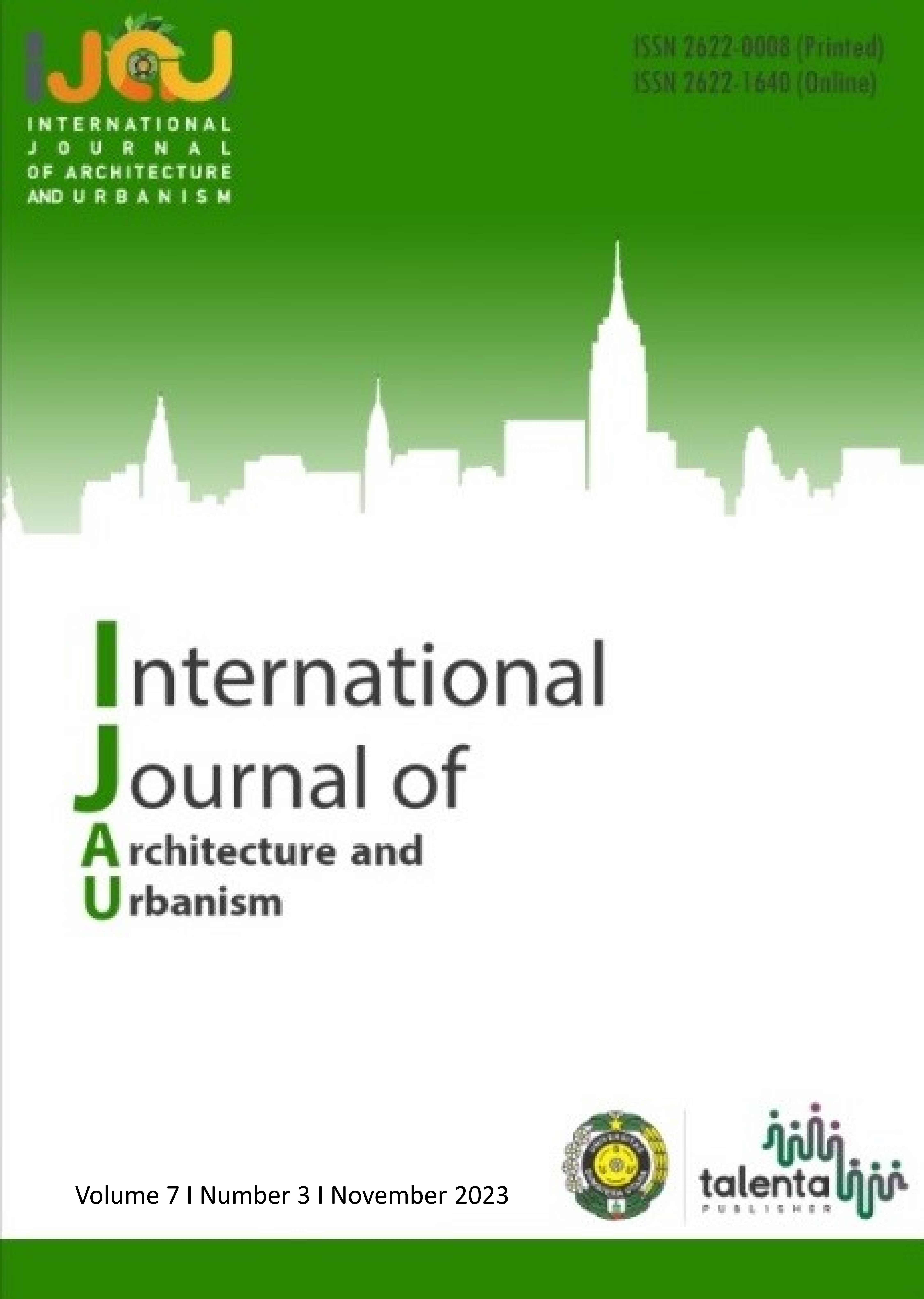Aspects of Place Meaning in Heritage Tourism (Case Study: Rumah Balai Ujung Tanjung, Tanjungbalai City, Indonesia)
DOI:
https://doi.org/10.32734/ijau.v7i3.14606Keywords:
Heritage Tourism, Place Meaning, TanjungbalaiAbstract
Tourism is one of the industries that can improve the welfare of the people in  an area, one.of.which is heritage.tourism. Visits to heritage tourism are one of  the fastest growing tourist activities, so heritage tourism is an asset that should  be developed by each region. In heritage tourism, there is a place attachment.  Place attachment is a bond made by humans with a place. One aspect of the  formation of place attachment is the meaning of place. A historical tourist  attraction that has a place attachment is the Rumah Balai Ujung Tanjung  Tanjungbalai.
This study aims to analyze aspects of the meaning of the place  owned by Rumah Balai. The.research.method used in this.research is a  concurrent mixedmethod. The results of the analysis carried out stated that the  aspect of the meaning of the place owned by Rumah Balai Ujung Tanjung is  still low and this can be improved by increasing aspects of physical  characteristics and aspects of social interaction. So that it can increase the  number of visitors who come.
Downloads

Published
Versions
- 2023-12-06 (2)
- 2023-11-30 (1)
How to Cite
Issue
Section
License
Copyright (c) 2023 International Journal of Architecture and Urbanism

This work is licensed under a Creative Commons Attribution-ShareAlike 4.0 International License.

.png)










